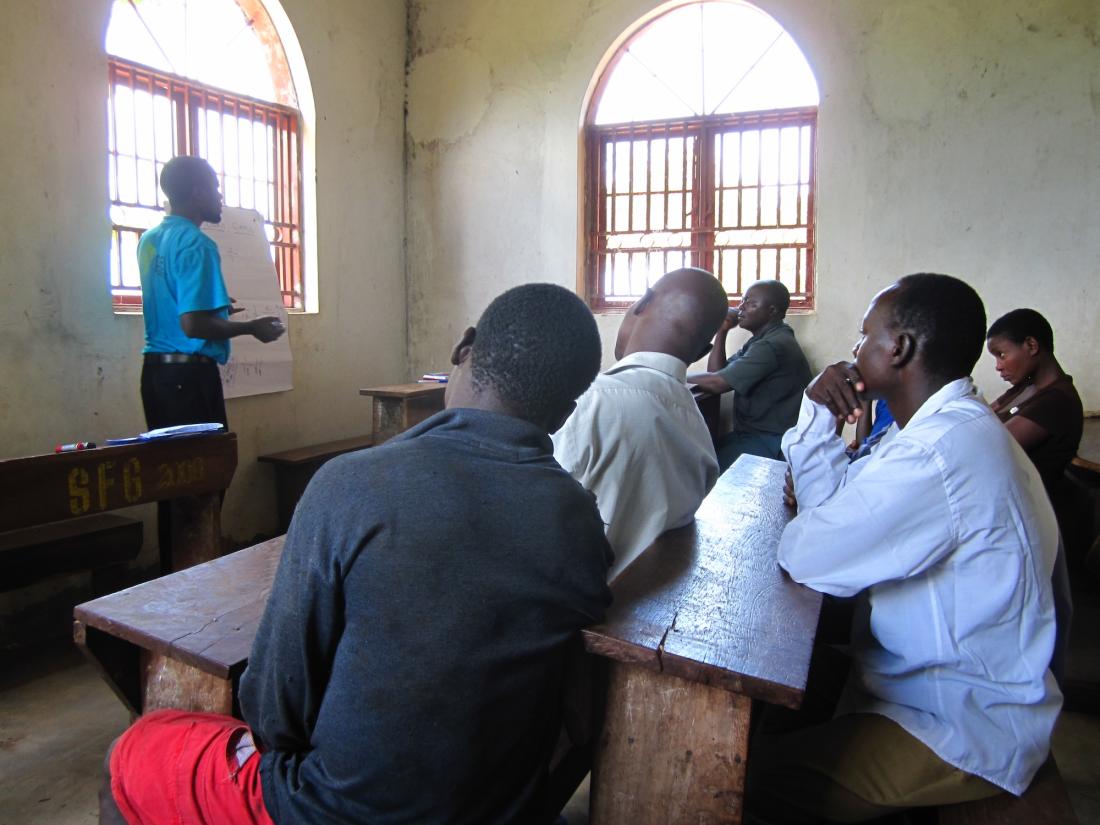Unconditional Cash Grants for People with HIV/AIDS in Uganda
- Adults
- HIV/AIDS
- Sexual and reproductive health
- Health outcomes
- Savings/deposits
- Cash transfers
- Information
- Preventive health
- Unconditional cash transfers
Research has shown that HIV/AIDS impacts not only the health of infected individuals, but also their financial security, and the financial security of their households, often aggravating existing poverty. Researchers will introduce unconditional cash grants, coupled with financial planning sessions, to people living with HIV/AIDS to evaluate the impact on the health and financial security outcomes of participants.
Policy issue
Evidence indicates that HIV/AIDS affects not only infected individuals, but also the health and wealth of their households. When a household member is affected by HIV/AIDS, it can exacerbate existing poverty by hindering productivity and imposing additional costs on households, such as health care and funeral costs. The link between HIV/AIDS and poverty has caused some researchers and policymakers in recent years to examine financial assistance as a potential tool in the fight against AIDS.1 This study sheds light on this relationship by evaluating the impact of providing unconditional cash grants, coupled with financial planning sessions, to people living with HIV/AIDS.
Context of the evaluation
In Uganda, approximately 1.5 million people, or 7.2 percent of the population, are living with HIV.2 The high infection rate is coupled with high rates of poverty, especially in rural areas. In 2012, Uganda ranked 161st among 187 countries on the United Nations Development Program’s Human Development Index.
The AIDS Support Organization (TASO), the implementing partner in this study, is a Ugandan NGO founded in 1987. TASO has provided HIV/AIDS services to over 200,000 individuals since its inception, and now has eleven service centers spread across Uganda. TASO is looking for new evidence-based ways of supporting their clients, and is prepared to expand microfinance and grant opportunities across Uganda if there is compelling evidence that these programs improve patients’ lives.

Details of the intervention
To evaluate the impact of unconditional cash grants on the health and financial security outcomes of people living with HIV/AIDS, researchers will carry out a randomized evaluation of a cash grant program, jointly designed by researchers and TASO, and administered by TASO. The unconditional cash grant program will provide cash transfers of 350,000 Ugandan shillings (approximately US$138), with no strings attached, to HIV/AIDS positive TASO clients.
Approximately 2,200 HIV/AIDS positive TASO clients, ages 18-60 will be randomly divided into one of four groups:
-
A treatment group that will receive cash transfers with no accompanying instructions on how the money should be spent,
-
A treatment group that will receive cash transfers plus financial counseling,
-
A treatment group that will be told they will receive cash transfer after one year, and
-
A comparison group that will not receive any intervention. The third treatment group will enable researchers to see how participants’ financial status and planning changes, or if it changes at all, when they know they will receive money in one year.
The quarter of clients that receive both cash grants and financial counseling will meet with a financial counselor twice at a TASO center, with six days between the meetings, and then will receive the grant at the end of the second one-hour meeting. At the meetings, the counselors will help clients think through and plan for the grant. Discussions will focus on topics such as setting realistic expectations, prioritizing expenses, handling family members’ expectations of the grant, and resisting temptations. Furthermore, the counselors will go into detail about income generating activities, loans and/or saving, depending on the client’s particular interests.
Results and policy lessons
Results forthcoming.
Sengupta, Rajdeep, and Craig P. Aubuchon. 2008. The Microfinance Tevolution: An Overview."Federal Reserve Bank of St. Louis Review90 (January/February).
UNAIDS. Country Report Uganda. 2012. Available at: http://www.unaids.org/en/regionscountries/countries/uganda/
